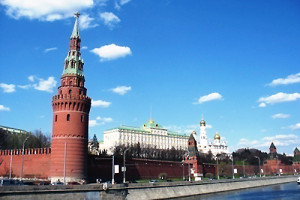RUSSIALINK: “Fighting inflation of global origin with internal instruments is counterproductive – Oreshkin” – Interfax

MOSCOW. Aug 2 (Interfax) – Trying to use internal instruments to curb inflation caused by a temporary wave of global demand is counterproductive and comes at a “high price” for the economy, Kremlin aide Maxim Oreshkin said.
“This wave of demand is now passing over the entire global economy, affecting every economy. On one hand, it makes it possible to accelerate economic growth, but it is clearly affecting inflation processes in virtually all countries,” Oreshkin said in an interview on the international affairs program Mezhdunarodnoye Obozreniye on TV channel Rossiya24 when asked about inflation risks related to the anti-crisis policy of the United States, which President Vladimir Putin mentioned at a recent meeting.
“It’s obvious that it’s counterproductive to fight at the local level with this wave of specifically global demand. Every economy, including Russia’s, deals with internal demand, but fighting a wave of global demand with internal instruments is, of course, counterproductive. There will be a very high price if we stop an external wave with internal instruments,” Oreshkin said.
“It’s important to understand that in the very same U.S. the budget deficit will shrink dramatically starting in the next financial year, because this wave of demand is of a temporary nature, we need to wait it out. The main thing is to take advantage of it in order to restore our own economy,” Oreshkin said.
Putin held a meeting on economic issues last week with officials from the government’s finance and economics team and the head of the Central Bank.
“We see that the recovery of the global economy in general is continuing, and at a fairly fast pace, but this objective process also comes with inflation risks. In the U.S., for example, inflation has topped 5%, although I think their target was around two, and they’re running budget deficits of 15% for two years in a row already. Two years in a row, and they’re covering this deficit with what? With emission [of money]. That’s where inflation is coming from,” Putin said at the meeting
“Of course, this reflects completely and utterly on the whole global economy given the importance of the American [economy] for the whole world and the importance of the dollar as the biggest and most popular reserve currency. In our country, the fairly rapid recovery of key sectors of the national economy, the labor market, like abroad – I just talked about the example of the U.S., is also being accompanied by rising inflation that, although not that significant, still exceeds our targets,” Putin said.
He urged the government and Central Bank to coordinate their macroeconomic actions. “It’s clear that various factors are playing a role here, both internal and external. The government and Central Bank are responding accordingly, both at the level of macroeconomic actions and sectoral regulation. It’s important, I want to stress again, that all steps taken are coordinated, calibrated and balanced. I’m confident that this is how we will act,” Putin said.
The Central Bank raised its key interest rate by 100 basis points, from 5.5% to 6.5%, on July 23. This was the fourth consecutive rate hike, and the biggest in the current cycle of monetary tightening; it previously raised the rate by 25 points and twice by 50 points.
Having raised the rate by 100 points at once for the first time since December 2014, the Central Bank significantly softened its guidance. Although it did not announce that the cycle of tightening would end soon, now another rate hike does not seem predetermined ahead of time.
“If the situation develops according to the baseline forecast, the Bank of Russia will assess the advisability of a further increase of the key rate at its next meetings,” the Central Bank said, meaning its next three board meetings.
The Central Bank also raised its inflation forecast on July 23, to 5.7-6.2% from 4.7-5.2% for 2021 and to 4.0-4.5% for 2022. The government’s inflation forecast is significantly lower, at 5% for 2021 and 4% for 2022.
[article also appeared at interfax.com/newsroom/top-stories/72374/]
